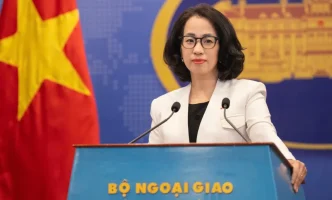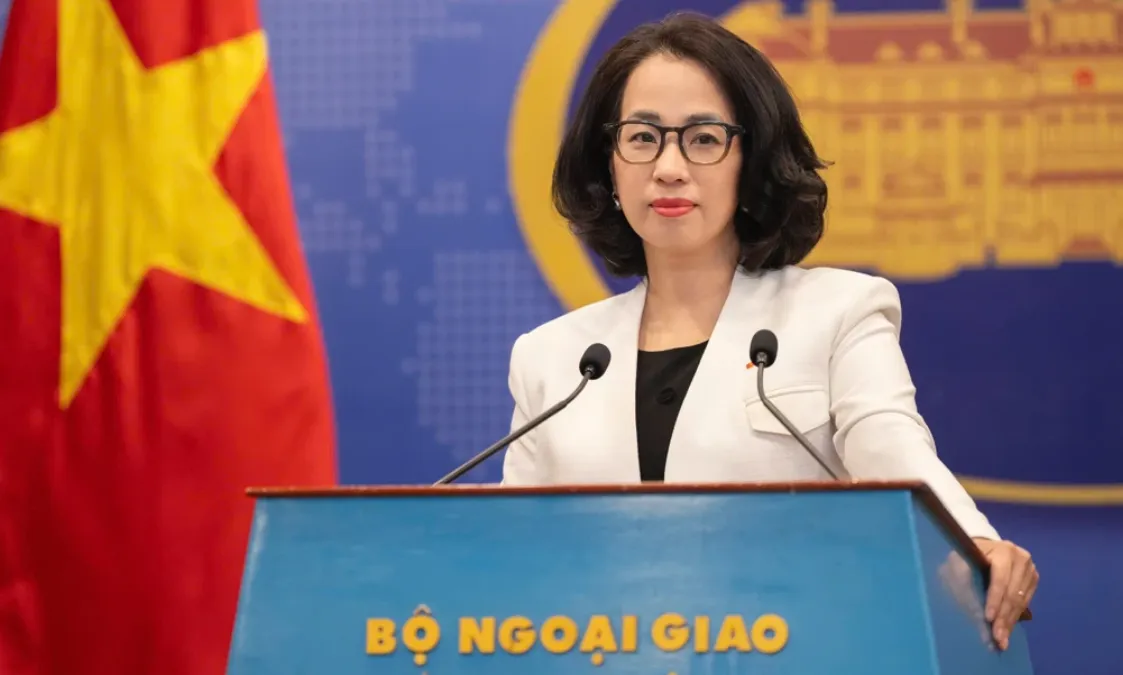In a significant operation coordinated by Vietnam’s Ministry of Foreign Affairs (MoFA), 471 Vietnamese citizens have been safely repatriated from Myanmar following a series of deployments in April and May 2025. The effort, described as a large-scale initiative involving multiple government agencies, underscores Hanoi’s commitment to citizen protection amid escalating security concerns in Myanmar’s volatile border regions, particularly in Myawaddy Town, a hub for illegal activities.
Operation Details and Challenges
The repatriation unfolded across three phases on April 8, April 28, and May 14, bringing home individuals who were caught up in a complex web of illegal immigration, forced labor, and criminal enterprises along the Myanmar-Thailand border. Myawaddy, located in southeastern Myanmar’s Karen State and separated from Thailand’s Mae Sot City by the Moei River, is a critical trade point but also notorious for gambling, betting, and other illicit activities. According to Luong Thanh Quang, Deputy Director of the Consular Department under MoFA, the area has become a focal point for transnational crime, drawing vulnerable individuals with promises of easy money.
“After quick screening, the Myanmar authorities determined that many Vietnamese citizens taken from gambling establishments were illegal immigrants and workers and had to leave the country. The information was reported to the MoFA’s Consular Department in Vietnam. We developed a plan to receive and bring them back to the country” said Quang, highlighting the urgency of the operation. However, the logistics proved daunting. The security situation in Myanmar made travel from Yangon, where Vietnam’s embassy is based, to Myawaddy nearly impossible, complicating efforts to verify identities and facilitate safe returns.
Crackdown on Border Crime
The repatriation follows a coordinated crackdown by Myanmar authorities and Thai police on online gambling dens and other illegal operations along the border in March 2025. These raids uncovered tens of thousands of undocumented foreigners from various countries engaged in activities ranging from online fraud to human trafficking. Among them were hundreds of Vietnamese citizens, some of whom had overstayed visas or were implicated in criminal acts. Quang noted that while initial assessments identified 681 Vietnamese nationals from 56 provinces and cities, the numbers fluctuated rapidly, rising from 200 to over 600 in a matter of days.
Myanmar officials, in official communications with Vietnam, confirmed that many of these individuals had violated local laws, including illegal entry and participation in prohibited activities. Some had even been repatriated previously, only to return to work in gambling establishments. As a result, they were expelled, with Myanmar requesting Vietnam to accept their return. The MoFA, in collaboration with the Ministry of Public Security and Ministry of National Defence, conducted extensive identity verification to ensure an orderly process, despite the chaotic backdrop of Myanmar’s ongoing internal conflicts.
Human Trafficking Concerns and Legal Ambiguities
One of the most pressing issues surrounding the repatriation is the question of whether some of these citizens were victims of human trafficking. Quang clarified that, based on discussions with relevant agencies, there is currently no concrete evidence to classify the deported individuals as trafficking victims. “In case citizens were tricked into working in Myanmar, after returning home, they can contact the local police to report it and after the investigation, if they are determined to be victims of human trafficking, they will receive appropriate financial support” said Quang, emphasizing the government’s willingness to assist if evidence emerges.
This stance reflects a cautious approach by Vietnamese authorities, balancing the need to protect citizens with the legal complexities of their status in Myanmar. Many of these individuals were lured by scams promising high-paying jobs, a recurring issue highlighted in Vietnamese media through public warnings about “easy work with high salary” schemes. The lack of immediate evidence of trafficking does not rule out the possibility, and investigations are expected to continue as repatriated citizens reintegrate into their communities.
Broader Implications for Citizen Protection
The operation raises critical questions about Vietnam’s strategies for protecting its citizens abroad, particularly in regions plagued by instability and crime. Myawaddy’s reputation as a hotspot for illegal activities underscores the risks faced by migrant workers and undocumented individuals seeking economic opportunities in Southeast Asia’s borderlands. The Vietnamese government’s response, while successful in bringing hundreds home, reveals the challenges of operating in areas where security and access are severely constrained.
Analysts suggest that this incident may prompt Hanoi to strengthen its consular services and public awareness campaigns to prevent citizens from falling prey to fraudulent job offers. The collaboration between MoFA, security agencies, and local authorities in identifying and repatriating citizens could serve as a model for future operations, though the scale and urgency of the Myawaddy situation highlight the need for preemptive measures. Additionally, the involvement of multiple ministries indicates a whole-of-government approach, which may be necessary as geopolitical tensions and internal conflicts in neighboring countries continue to affect Vietnamese nationals abroad.
Regional Context and Cross-Border Dynamics
The situation in Myawaddy is not isolated but part of a broader pattern of cross-border crime in Southeast Asia, where porous borders and economic disparities create fertile ground for illicit enterprises. The Moei River, separating Myawaddy from Mae Sot, is more than a geographical boundary; it represents a divide between relative stability in Thailand and the turmoil of Myanmar, where civil conflict and weak governance have allowed criminal networks to flourish. The raids in March 2025, involving cooperation between Myanmar and Thailand, signal a growing regional resolve to tackle these issues, though the effectiveness of such measures remains uncertain given the entrenched nature of these operations.
For Vietnam, the repatriation of its citizens from Myawaddy is a reminder of the interconnectedness of regional challenges. Many of the repatriated individuals hail from rural provinces where economic opportunities are limited, driving them to seek work abroad under risky conditions. This incident may also prompt closer cooperation with neighboring countries to address human trafficking and illegal migration, though such efforts will require navigating diplomatic sensitivities and varying national priorities.
Public Sentiment and Future Outlook
Back in Vietnam, the repatriation has sparked mixed reactions. While families of the returned citizens express relief, there is also concern about the stigma they may face due to their involvement in illegal activities abroad. Public discourse on social media and local news outlets reflects a broader anxiety about the safety of Vietnamese workers overseas, with calls for stricter regulations on labor migration and harsher penalties for recruiters who exploit vulnerable individuals.
As Hanoi continues to process the returnees and investigate potential trafficking cases, the focus will likely shift to prevention. Strengthening bilateral agreements with countries like Myanmar and Thailand to monitor and protect migrant workers could be a step forward, though implementation in conflict zones remains a formidable challenge. For now, the safe return of 471 citizens marks a hard-won achievement, but it also serves as a sobering reminder of the risks lurking beyond Vietnam’s borders.
As the dust settles on this operation, questions linger about how Vietnam can better shield its people from the dangers of illicit cross-border economies. The answers may shape not only national policies but also the lives of countless individuals dreaming of a better future abroad.
















